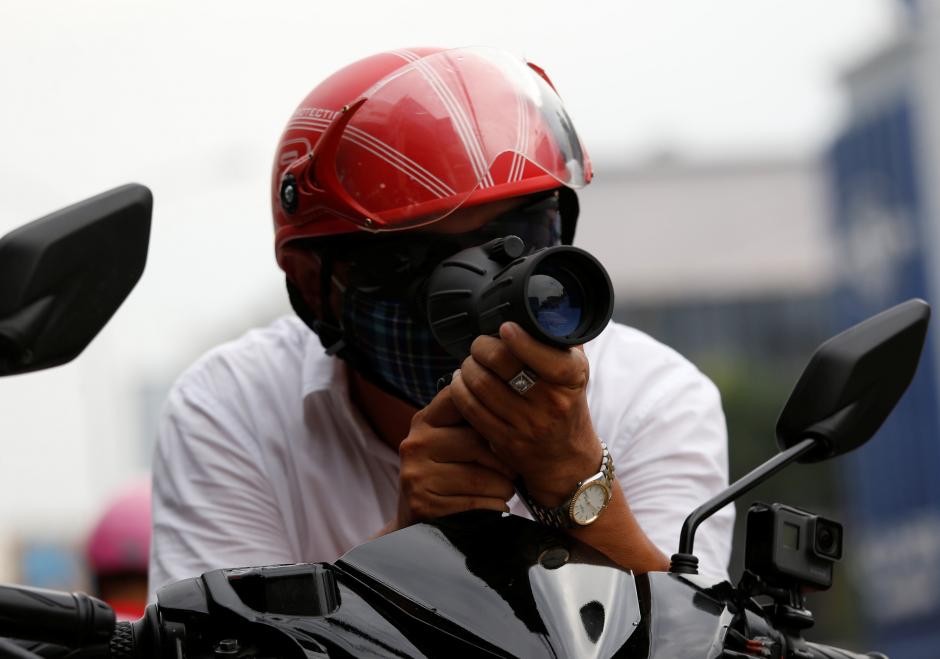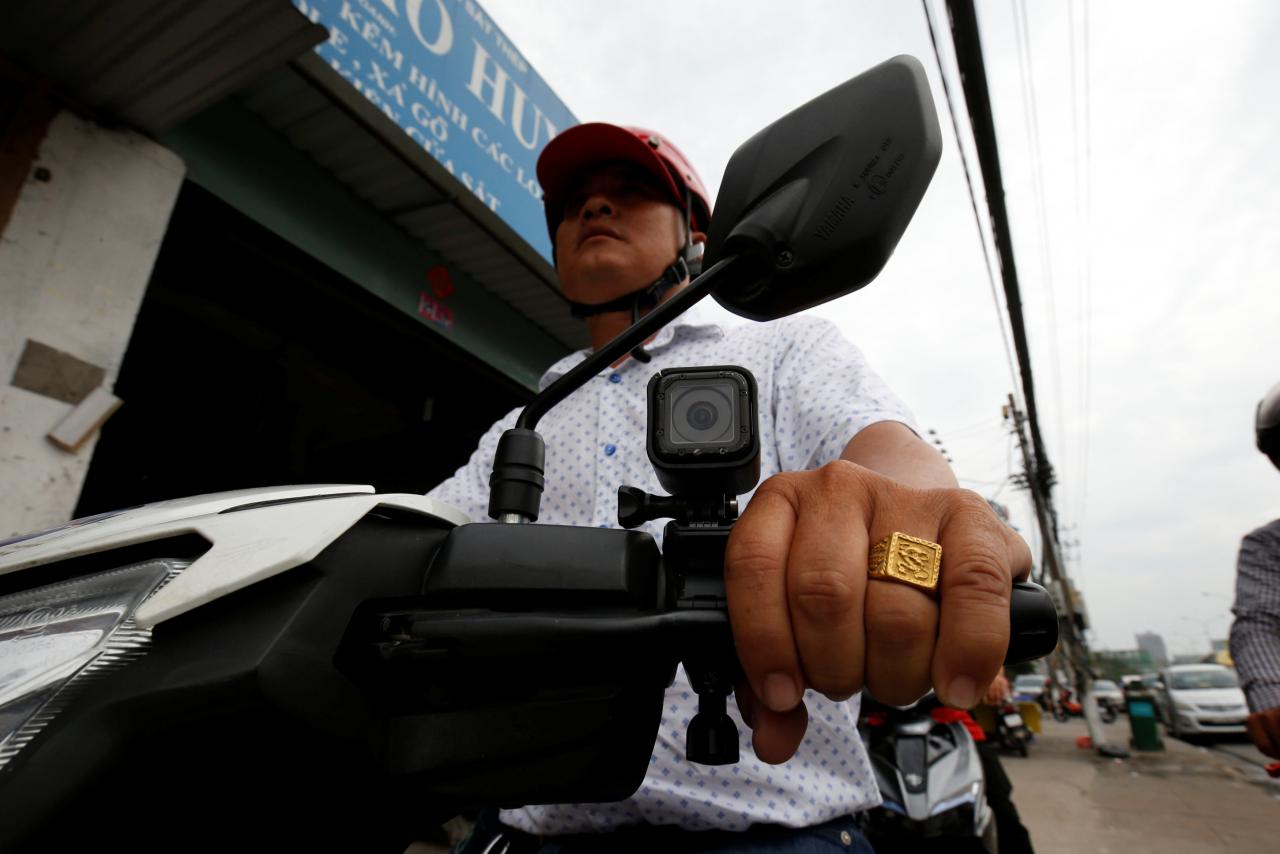Vietnam’s “street knights”, hurtling through the streets of Ho Chi Minh City, are not your typical medieval warriors.
Their stallions are scooters. They wear rubber flip-flops, not metal boots. And their shining armor is a tracksuit jacket billowing like a cape.
The band of bike-riding unpaid vigilantes chases down petty criminals in Vietnam’s largest city and the neighboring province of Binh Duong, where residents grumble about rising crime and ineffectual policing.
“Whenever there’s a call I show up,” said one of them, Nguyen Thanh Hai, who gets 50 to 100 calls for help every day about robberies, drugs, and even kidnappings.
“Even at midnight, when I can barely keep my eyes open.”
Hai, 47, keeps a notebook recording details of the roughly 4,000 criminals he has helped catch and turn over to police during 21 years as a part-time crime fighter, though he gets no monetary reward.
“You don’t think about money when you do this,” he added.
He is among a group of about 30 men in Ho Chi Minh City, and 1,500 in the province, who have modified their bikes with police-like sirens and upgraded engines that can reach speeds of more than 170 kph (106 mph).
Videos of their high-speed chases have gone viral on social media. One shows thieves weaving between trucks and cars along a twisting, suburban highway, with the group in hot pursuit.
“My little son gets so excited when he sees me on YouTube,” said Pham Tan Thanh, a 31-year-old Binh Duong taxi driver who becomes a street knight in his spare time.
“He always asks me when I’m going to go out again.”
The men don’t see themselves as heroes, they said, but they do appreciate the occasional gesture of thanks, with Southeast Asia’s famously pungent-smelling durian fruit being a favorite.
Dangerous work
Crime is low in Vietnam, but petty theft and similar minor crimes are a growing problem in urban areas like Ho Chi Minh City, home to 8.6 million people.
Last year, Ho Chi Minh City ranked as the third least-safe city worldwide, after Caracas and Karachi, on the Safe Cities Index of the Economist Intelligence Unit, which rates personal security in 60 cities.
Some crime victims, hoping for a faster response, turn to the vigilantes before the police.
“Police have so many jobs, we just can’t blame them,” said one of them, Nguyen Viet Sin, whose father is a policeman. “If everyone shares the effort, society will be much better.”
The city’s police department did not immediately comment when contacted by Reuters, but some vigilantes say they work closely with officers.
Barred by law from carrying weapons, many have received police training on legal issues and use martial arts for self-defense, since their work can be dangerous.
Last month, two were stabbed to death in Ho Chi Minh City and three badly injured in clashes with thieves.
Sin described a fight with a suspected thief who cut himself and rubbed his blood into Sin’s wound. After learning that the suspect had HIV, Sin worried he could have been infected.
“I wanted to quit, but after I recovered and could still see clips of robberies on social media, I hit the road again,” he said. “My passion didn’t die.”
'In my blood'
After the two deaths, worried families begged some of the vigilantes to stop.
“My fiancée asked me to quit, and I agreed,” said Mai Truong Xuan Huy, a 44-year-old Vietnamese-American who works as a security guard in California.
 |
| Vietnamese-American Mai Truong Xuan Huy looks through a binocular while he patrols with his "street knights" team on a street in Thu Dau Mot city, Vietnam May 24, 2018. Picture taken May 24, 2018. Photo: Reuters |
Huy, who left Vietnam in the 1990s, returns to spend his summers fighting crime with the street knights.
“I feel so proud every time I help someone, but it’s also very tiring,” he said at a Binh Duong coffee shop that is an unofficial group headquarters.
“I’ve been peppersprayed and had my head smashed,” he said. “It’s very dangerous and the thieves have more weapons now. It’s no fun.”
His ruminations on leaving the group were interrupted by two people asking for help. Huy and his friends jumped on their bikes.
“I can’t help it,” he said as he sped off. “It’s in my blood.”
Like us on Facebook or follow us on Twitter to get the latest news about Vietnam!






















































